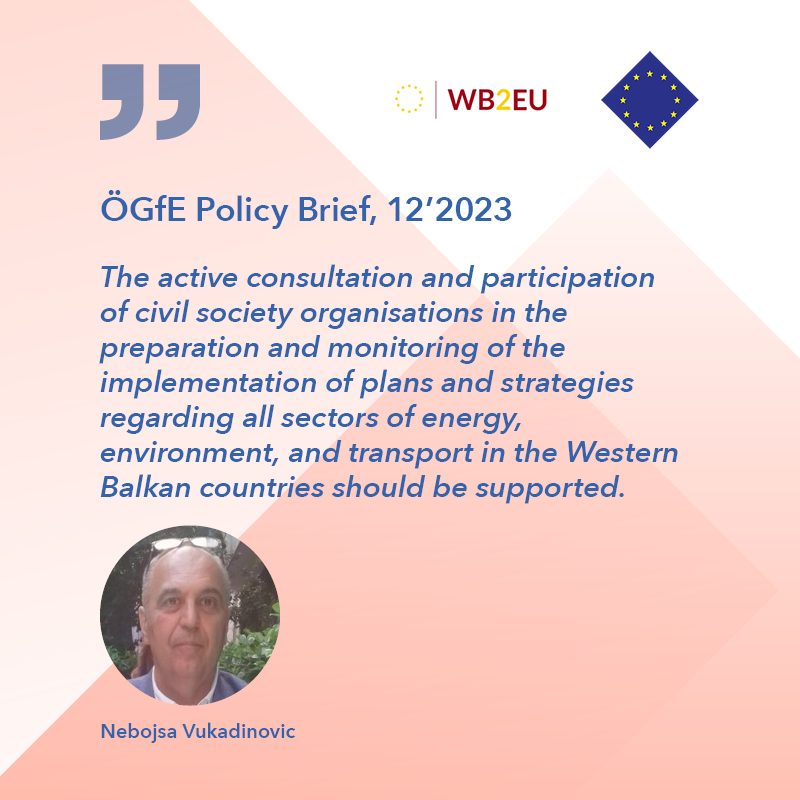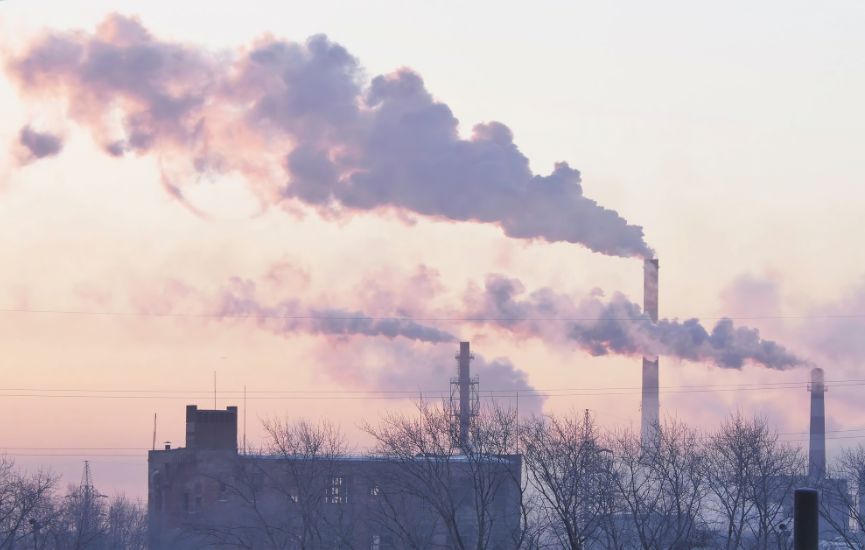Environmental democracy in the Western Balkans between dependent capitalism and integration into the European Union, Nebojsa Vukadinovic, ÖGfE Policy Brief, 12’2023
Environmental issues in the Western Balkans are at the centre of civic mobilisation against the negative effects of various types of pollution. In addition, during the post-socialist period, a dependent capitalism has emerged in the Western Balkan countries, particularly as a result of increased dependence on foreign investments and international aid. In this context, this Policy Brief analyses the economic development and consequences of dependent capitalism on the environment. It also points out how the process of European integration impacts environmental issues as well as the role of local actors. The significant increase in civil society actors in the field of the environment has created a new situation in recent years. In this sense, this Policy Brief questions the concept of environmental democracy in the Western Balkans.
Policy Recommendations
- The active consultation and participation of civil society organisations in the preparation and monitoring of the implementation of plans and strategies regarding all sectors of energy, environment, and transport in the Western Balkan countries should be supported. In addition, the exchange of experiences between the Western Balkan countries on these tasks should be organised.
- The role of academic and research institutions in the decision-making process for the elaboration and implementation of public policies in the environment sector in the Western Balkans should be strengthened, and academic research on regional cooperation should be promoted.
- The synergies between the two macro-regional strategies of the European Union (EU Strategy for the Adriatic and Ionian Region, EU Strategy for the Danube Region) in the area of environment should be reinforced. Regional cross-border cooperation in the environment via instruments of pre-accession programmes and projects should be strengthened, as should the role of international donors.
The region is facing a unique double transition: first, moving from centralised state-controlled systems to open and competitive markets, and second, moving towards decarbonisation.
Nebojsa Vukadinovic Tweet

Photo: BlackWhaleMedia / Envato


